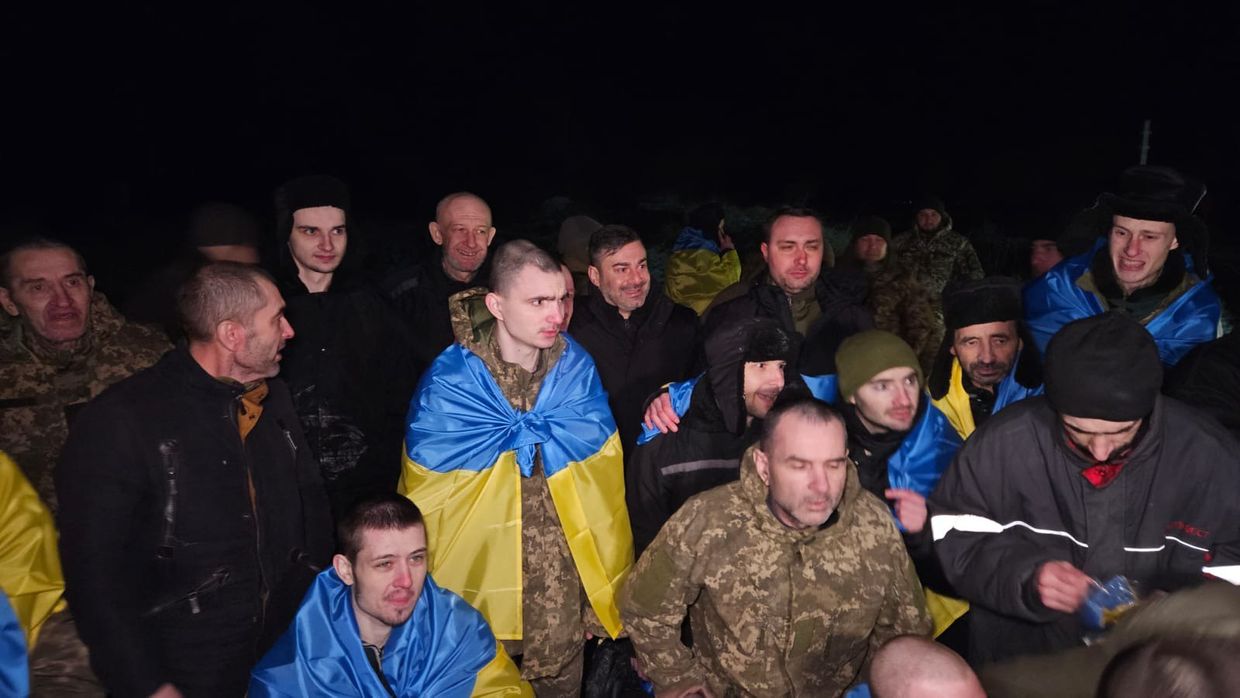UN Security Council discusses Il-76 crash

The U.N. Security Council held an emergency session on Jan. 25 to discuss the downing of a Russian Il-76 military plane that Russia alleges was transporting Ukrainian prisoners of war.
The plane crashed on Jan. 24 in Russia's Belgorod Oblast. The cause of the crash is unclear, with Russia claiming that Ukraine's military shot the plane down as it carried 65 Ukrainian POWs. Kyiv has demanded an international probe into the incident.
"The United Nations is not in a position to verify these reports or the circumstances of the crash," U.N. Under-Secretary General Rosemary DiCarlo said during the meeting.
“What is clear is that the incident took place in the context of Russia’s invasion of Ukraine and ongoing war. To avoid further escalation, we urge all concerned to refrain from actions, rhetoric or allegations that could further fuel the already dangerous conflict.”
The U.N. session was convened at the request of Russian Foreign Minister Sergey Lavrov, who called the crash a "terrorist attack."
Deputy Ukrainian Ambassador to the U.N. Khrystyna Hayovyshyn said that Russian military planes such as the Il-67 constitute a "legitimate military target." She said that while Ukraine fulfilled its obligations to the safety of Russian POWs in a planned prisoner exchange on Jan. 24, Russia did not take measures to protect Ukrainians.
"The Russian side was supposed to ensure the same level of safety of the Ukrainian captured servicemen," Hayovyshyn said.
"At the same time, the Ukrainian side was not informed of the need to secure the airspace in the area of Belgorod city during the specified period, as has been done several times in the past."
She said that these security lapses could indicate "intentional actions by Russia to endanger the lives and safety of the prisoners."
Russian lawmaker Andrey Kartopolov claimed on Jan. 25 that Russia gave Ukraine a 15-minute-warning ahead of the flight of the Il-76, but Kyiv has denied this assertion.
Hayovyshyn said Russia has a history of using "civilians as human shields" and further accused Russian authorities of failing to follow protocol in the aftermath of the crash.
"Following the plane crash, the Federal Security Service and the Russian military did not allow emergency workers to inspect the crash site as per protocol," Hayovyshyn said.
"According to our military intelligence, only five bodies were sent to the local morgue in Belgorod, and no human remains are visible on videos from the crash site."
Russia’s U.N. envoy Dmitry Polyansky dismissed Hayovyshyn's concerns as "paranoid nonsense."
Ukraine's Chief Ombudsman Dmytro Lubinets said on Jan. 25 that images from the crash site do not indicate "any signs that there were such a large number of people on the plane." He also said some of the POWs Russian sources named as killed in the crash had already been exchanged.
Lubinets compared Russia's reaction to the Il-76 crash with the case of Olenivka, a Russian prisoner of war camp where an explosion in July 2022 killed 57 Ukrainian POWs and injured over 100.
Russia alleged that Ukraine had struck the camp with a HIMARS rocket, but a U.N. investigation concluded in October 2023 that Russian claims of Ukrainian involvement in the explosion were false.
In her statement to the council, DiCarlo drew attention to the ongoing plight of Ukrainian POWS in Russian captivity.
"Just in the past week, our colleagues in the Human Rights Monitoring Mission in Ukraine interviewed 31 prisoners of war who returned (from Russia) in early January. What we hear in these interviews is harrowing," DiCarlo said.
"Only very few had been able to communicate with their families during their internment. Over 90 percent say they were tortured."
DiCarlo urged Russia to allow international monitors access to POWs and said that "the fate of POWs should not be instrumentalized."














